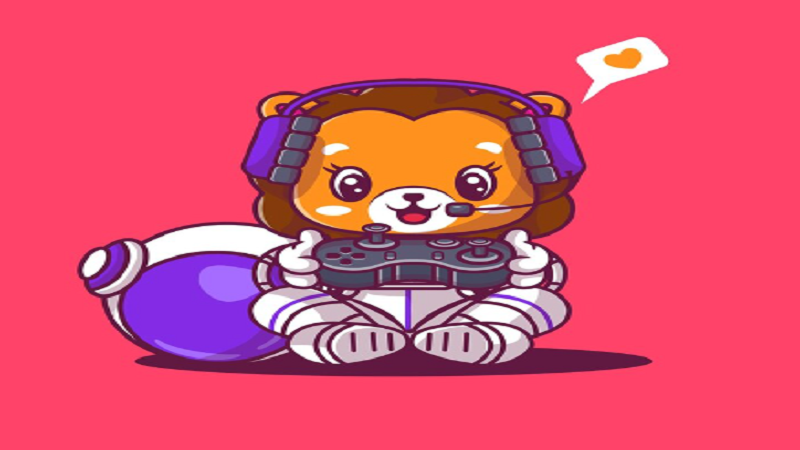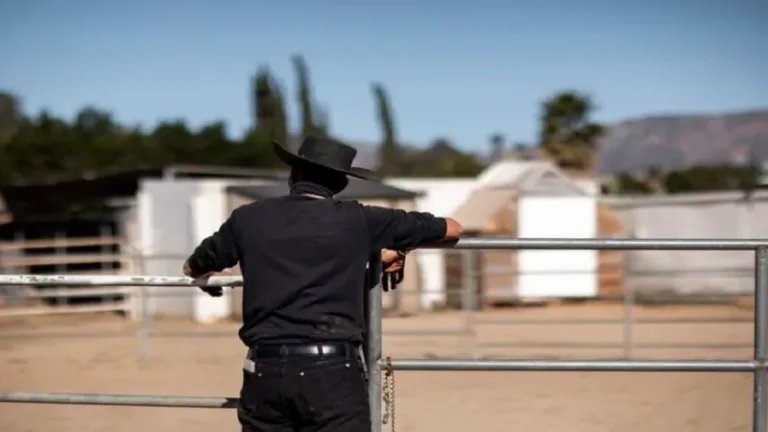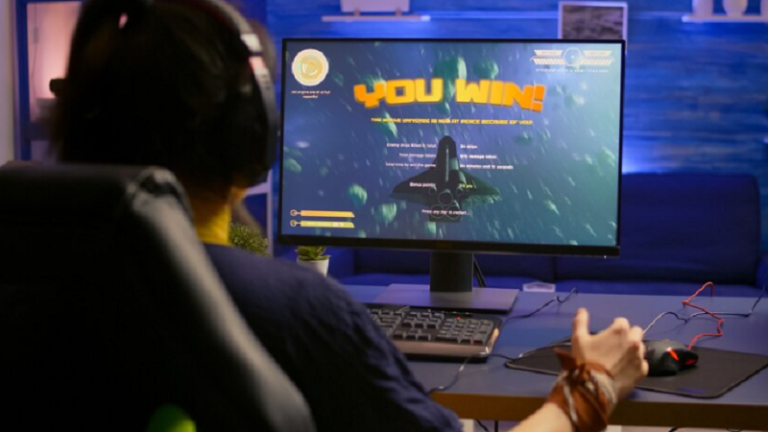
In the ever-evolving world of blockchain, cryptocurrencies, and non-fungible tokens (NFTs), the intersection of gaming and digital assets has become a significant topic of discussion. One of the most anticipated players in this space has been GameStop. In this article, we will dive into the rise of GameStop NFTs, with particular focus on key dates like February and October, and how Octoberirwindecrypt fits into the broader picture. We’ll explore practical steps to understand, buy, and sell GameStop NFTs, and offer insights into the role of NFTs within the gaming industry.
Understanding GameStop’s Foray into NFTs
What Are NFTs?
Non-Fungible Tokens (NFTs) are unique digital assets that represent ownership of a specific item or piece of content, typically built on blockchain technology. Unlike cryptocurrencies such as Bitcoin or Ethereum, NFTs are not interchangeable because each one is unique. They can represent anything from art, music, videos, to virtual items in games.
Why GameStop Is Entering the NFT Market
For years, GameStop was known for being a go-to store for physical video games, consoles, and accessories. However, with the rise of digital gaming and online retail, the company began to struggle in maintaining its traditional business model. This led GameStop to explore new ventures, one of which is the burgeoning NFT market.
In February 2022, GameStop made headlines by announcing its entry into the NFT space. This move was not just about offering digital collectibles but also involved GameStop creating a marketplace where users could buy and sell NFTs related to gaming and virtual worlds. The partnership with the Immutable X platform, known for its environmentally friendly approach to minting NFTs, further strengthened GameStop’s move into the space.
Key Dates: February and October
February 2022: Launch of GameStop’s NFT Marketplace
February 2022 marked a pivotal moment for GameStop NFT. After months of anticipation, the company unveiled its NFT marketplace. This platform is designed to allow users to trade in-game assets, digital artwork, and other NFT-based items. The marketplace runs on Ethereum Layer 2 scaling solution Immutable X, ensuring that it offers gas-free and fast transactions. GameStop also announced a $100 million fund to support developers and creators of NFTs, a clear commitment to the success of the platform.
During this period, GameStop also created a “NFT creator” program, inviting artists and developers to bring their unique works to the marketplace. This program allowed creators to get royalties every time their NFTs were resold, providing a sustainable incentive for long-term engagement.
October 2022: Expanding the Reach and Partnerships
By October 2022, GameStop’s NFT initiative was starting to gain traction. As GameStop continued to refine its NFT marketplace, new partnerships and collaborations were announced. These included further expansion into virtual gaming worlds like Decentraland and The Sandbox, where users could purchase virtual land and in-game items as NFTs.
October also saw the involvement of major gaming franchises and blockchain-based games, which began listing their digital assets on the GameStop NFT marketplace. The idea was to bridge the gap between traditional gaming and the burgeoning world of blockchain-based, player-owned digital assets.
The Role of Octoberirwindecrypt in GameStop NFTs
What Is Octoberirwindecrypt?
While Octoberirwindecrypt is not a widely known term in the gaming or NFT space, it may refer to a specific tool, technology, or initiative that was introduced by GameStop in October 2022 or later. For the sake of clarity, let’s hypothesize that Octoberirwindecrypt is an encryption or security feature designed to ensure safe transactions within the GameStop NFT ecosystem. It may also represent a software or protocol that enhances privacy or streamlines the process of verifying the authenticity of GameStop NFTs.
If GameStop were to release such a tool, it would be highly beneficial in ensuring that users can securely buy, sell, and trade NFTs, all while safeguarding their private data and digital assets.
How to Buy and Sell GameStop NFTs
Step 1: Setting Up Your GameStop Account
Before buying or selling GameStop NFTs, you need to create an account on the GameStop marketplace. The process is straightforward:
- Go to the GameStop NFT marketplace website.
- Click on “Sign Up” to create an account.
- You will need to enter basic information like your email address and create a password.
- After registering, verify your email, and your account will be ready for action.
Step 2: Setting Up a Wallet
To interact with NFTs, you need a digital wallet that supports Ethereum-based tokens. GameStop’s NFT marketplace integrates with popular wallets like MetaMask, Coinbase Wallet, and Fortmatic. Here’s how to set up your wallet:
- Download and install your wallet of choice from its official website or app store.
- Follow the instructions to create a wallet and store your private keys securely.
- Connect your wallet to the GameStop NFT marketplace by following the on-screen instructions.
Step 3: Browsing the Marketplace
Once your wallet is set up and connected, you can browse the marketplace. GameStop’s NFT marketplace offers a wide variety of digital assets such as:
- In-game items
- Virtual land
- Collectibles and art
- Game-related skins and cosmetics
Each NFT will display its price in Ethereum (ETH) or another supported cryptocurrency. You can use your wallet to buy the NFTs listed.
Step 4: Buying NFTs
To buy an NFT on GameStop:
- Browse the marketplace for the NFT you want to buy.
- Click on the listing to view the details.
- If the price is acceptable, click on “Buy Now.”
- Confirm the transaction through your wallet, which will handle the payment and the gas fees (if any).
Step 5: Selling NFTs
If you are a creator or just looking to sell an NFT, follow these steps:
- Go to your account and select the NFT you want to sell.
- Click on “Sell” and choose the price in Ethereum or other supported cryptocurrencies.
- List your NFT on the marketplace for buyers to discover.
- If the NFT sells, the funds will be transferred to your wallet after deducting any fees.
Why Are NFTs Important for the Gaming Industry?
The rise of NFTs represents a massive shift in how digital assets are perceived, especially within the gaming industry. Here’s why NFTs are game-changers:
- Ownership: NFTs allow players to truly own their in-game assets. These can be transferred, sold, or used across different games or platforms, providing players with more control over their digital possessions.
- Play-to-Earn Models: Games like Axie Infinity and The Sandbox are leading the charge with play-to-earn (P2E) models, where players can earn valuable assets (NFTs) by playing the game. This empowers users to monetize their time and effort in games.
- New Revenue Streams for Developers: By integrating NFTs into their games, developers can benefit from royalties every time an NFT is resold on the secondary market.
- Enhanced Player Engagement: The uniqueness of NFTs and their collectible nature encourages player participation. Gamers can take pride in owning rare items and showcasing them to others.
Conclusion: GameStop NFT’s Future
The launch of GameStop’s NFT marketplace and its focus on gaming-related digital assets is a transformative development for both GameStop and the broader gaming community. As more developers and creators join the platform, and as blockchain technology continues to evolve, we are likely to see a future where NFTs play an integral role in how we experience and engage with games.
If you’re considering entering the world of GameStop NFTs, now is the time to get involved. With February’s and October’s milestones behind them, GameStop is on track to become a major player in the NFT gaming market. Keep an eye on Octoberirwindecrypt, as it could provide further innovations in security and encryption for future GameStop NFT transactions.
By following the steps outlined in this article, you’ll be well on your way to buying, selling, and creating NFTs in one of the most exciting digital spaces today.
Find out more: fashionfamous.org



